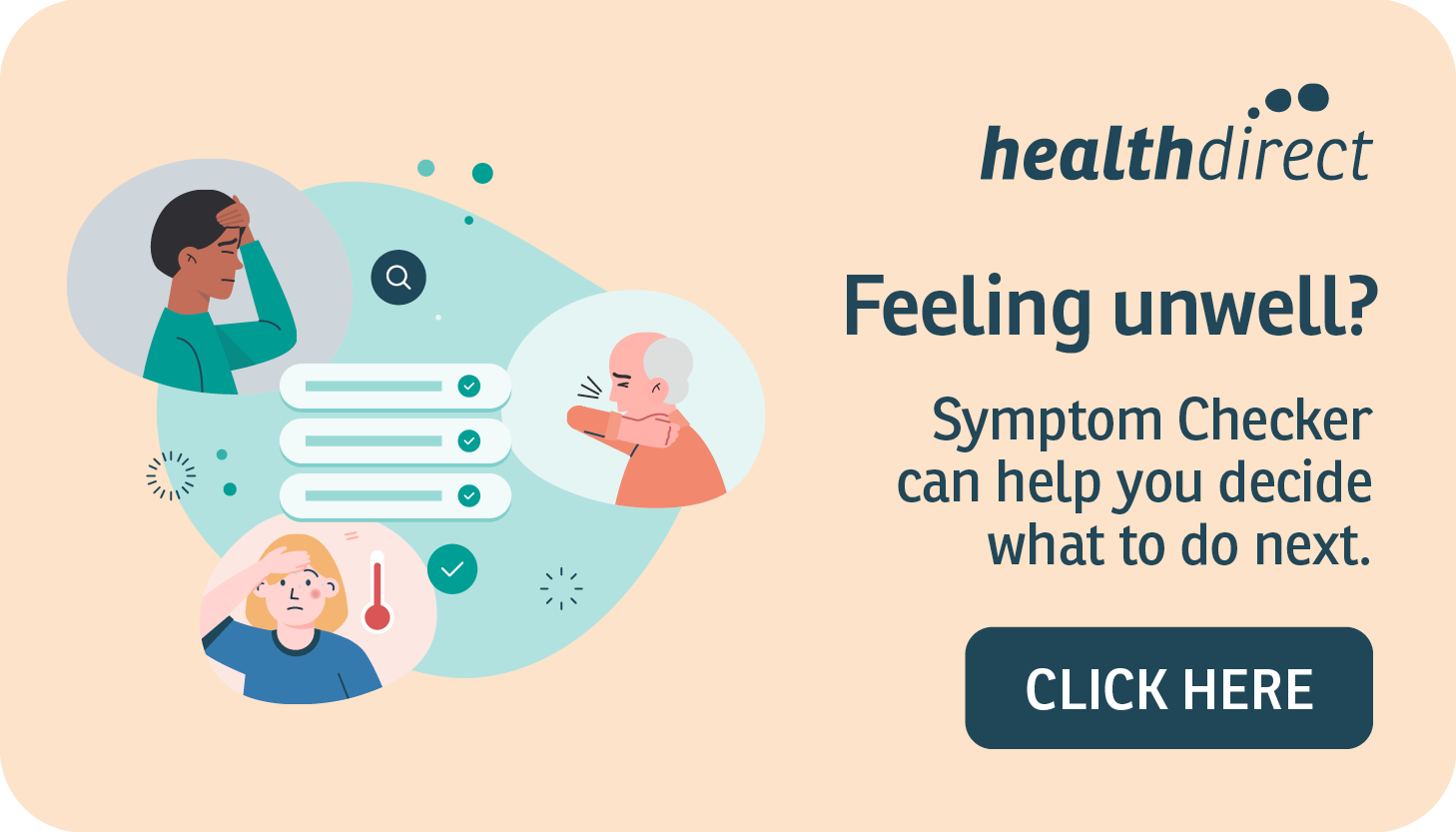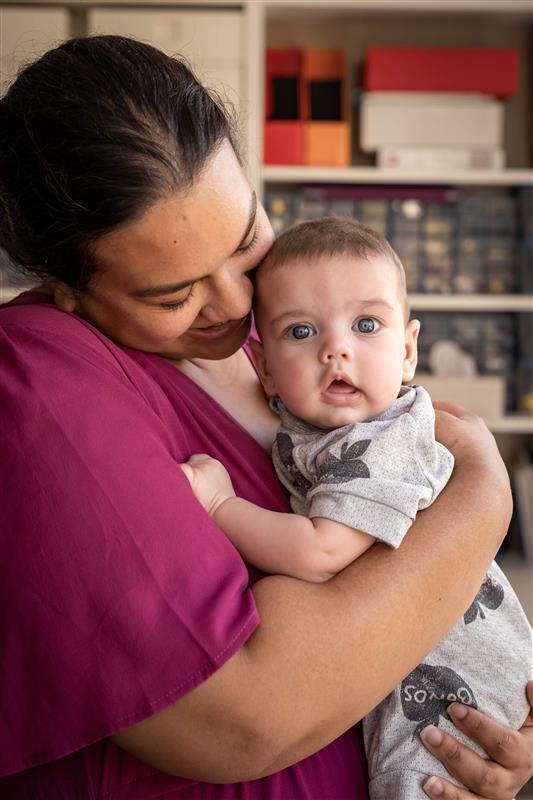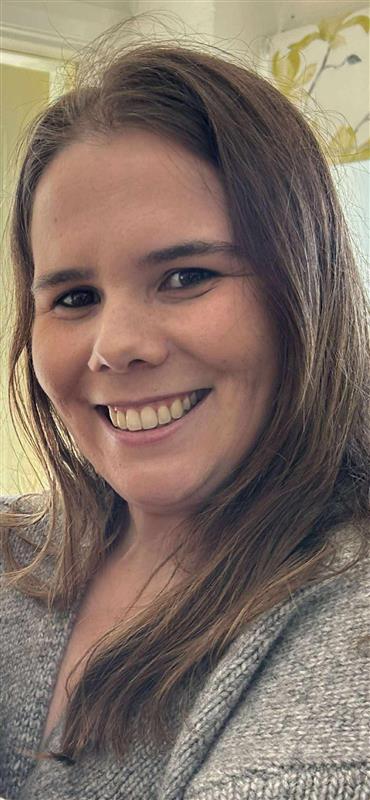It’s taken me some time to piece together this story because my experience of perinatal depression feels like a long time ago, and my memories of it are fragmented and distant.
I share this because I remember in the thick of it, during one of my counselling sessions, I told my therapist that even though I knew in my mind that I could and would overcome whatever I was going through, it didn’t feel possible at the time. At the time, in that moment, I was clouded, and I felt like I was drowning. Even though I knew I had a lifebuoy within arms reach and I could make it safely to shore, everything felt too far away… and that without help, I was certain I’d be overcome by my loneliness, weakness, and uncertainty.
So I guess I want people reading this to know that even though the darkness of depression feels all-consuming at times, it is possible to see it – and even experience it – through a completely different lens, and that with support and time, that power and destructiveness wanes.
There’s one vivid memory that was the trigger for my seeking support.
In late 2016, I was driving westbound on the Great Western Highway, approaching the Wallgrove Road intersection. I can’t remember where I was driving to, but I had my newborn son in the back seat and I was driving with my sunnies on and the radio off, thinking about the unremarkable morning we’d just had. It was unremarkable in the best possible way – we’d dropped off his brother at preschool on time and there’d been no poo explosions or frustrations with the morning feed. It was the type of smooth, uneventful morning I was genuinely grateful for. But as the traffic light turned yellow and I slowed the car down, I started to cry.
I sat there in silence as tears started leaking out of my eyes and an overwhelming feeling of sadness started to rise in my chest. I sniffed and wiped the tears away, but as the light turned green, I continued crying. The first thing I thought was, “Ok… Well, this isn’t normal.”
I could think of nothing, in particular, that would be making me so sad. Sure, I was stressed and sleep-deprived – most women with newborns are. But on the whole, I thought I was doing ok, and I couldn’t identify any specific event or issue that would be making me sad enough to cry.
Normally I’d shrug this off as a hormonal emotional episode. But as the tears kept coming, I remembered the feeling I’d had just a few weeks prior, when I left the medical clinic after my 6-week postpartum checkup.
Instead of going to our regular (male) GP, I opted to speak to a female GP, thinking I’d get a chance to talk to someone about how I was going physically and emotionally after labour.
The doctor asked me how my labour was (Answer: very intense and very fast), whether or not I required stitches (Answer: No, thank heavens) and whether we had decided what type of contraception we were going to use now that it was “safe” to start having sex again (Answer: We don’t use contraception, we practice natural family planning. I had to assure her that didn’t mean I intended to have another child next week.). Then she asked me to hop on the bed for a pap smear. Now for a couple of people who barely exchanged words she seemed completely comfortable sticking a pair of medical-grade tongs up my private parts, which, by the way, was not on my agenda for the day and hurt like hell. Then she asked me how the baby was doing (Answer: Fine. Yes, he’s feeding well; gaining lots of weight and his jaundice was clearing). Then she signed a letter to say I was ok to start exercising again, and bub and I were shooed out of her room so her next patient could come in.
The post-partum check-up ticked off and “complete” in less than 15 minutes.
Except I remember feeling that it wasn’t complete at all. I don’t know if she even asked me how I was going apart from the very specific post-labour questions above. She did ask me if this was my first baby, and I guess because it wasn’t, I was supposed to be ok.
Except… that’s not how motherhood works. Having one smooth pregnancy or one healthy child doesn’t necessarily set you up for a smooth second pregnancy or birth.
If she’d prodded, I’d have told her that I was yo-yo-ing between feeling completely fine and wanting to collapse in a heap on the floor. Sometimes I felt like the luckiest woman in the world and other times I was certain there was no end to the cloudy, suffocating exhaustion that came with being needed for someone else’s survival. The broad spectrum of positive and negative emotions that come with mothering a new baby was fluctuating and I was constantly going from one end of that spectrum to the other within the space of an ad break. I was constantly riding an emotional seesaw and I wanted to get off.
But when asked how I was – by this GP, or anyone else for that matter – all I could muster was an “umm… I’m ok?”
But the random tears during that drive down the Great Western Highway were a clear sign that things were not ok.
I ended up going to my regular GP and telling him what had happened. I remember feeling ridiculous and petty when I blurted out the words, “I’m sad and I don’t know why. I could be having a perfectly ok day, and just start crying out of nowhere. I think about how stressful the first few months were with our first baby (we were in and out of the hospital several times in his first 6 months) and I know that this time with our second baby is nowhere near as difficult, but for some reason, I am struggling. And it just feels really dumb to be struggling.”
I will always remember looking at my doctor through tears and seeing the kindness and understanding in his eyes, and him saying, “Why would it be silly to be struggling? If you were talking to any other mother with a newborn baby would you tell her it was silly to be struggling?”
I shook my head. We spoke for a while about what I was feeling, he reassured me that while struggling was normal, I didn’t have to struggle alone. And my heart instantly lifted as I signed the paperwork for a health plan that gave me access to counselling sessions with a local psychologist.
I had reason to feel overwhelmed, but I’d shrugged these things off as part of the “normal” struggle that all mothers learn to get on with. I’d grown up in a high-achieving, high-functioning household and in a culture where people don’t openly share the challenges that occur in the privacy of their homes. So I was just carrying on, thinking I’d somehow find the energy and know-how to cope (because isn’t that what everyone else does?), despite the onslaught of physical, mental, and emotional challenges I was navigating.
While my first pregnancy was relatively smooth-sailing, I’d experienced ongoing “morning” sickness throughout my second, as well as debilitating pain from pubic symphysis dysfunction (PSD). For the last four months of the pregnancy, I’d had difficulty walking, sleeping, driving, and playing with my toddler. I’d been told by midwives and physiotherapists that PSD often resolved itself after giving birth, but I was part of the unlucky few that had it hang around for months after birth.
I was also diagnosed with gestational diabetes in my second pregnancy, which I kept under control with a strict diet. I found this more palatable than having to inject myself with insulin, but limiting carb intake (especially for a Filipina who loves rice and sweets!) and monitoring blood levels after each meal added to my already heavy mental load: we had an active four year old to take care of, and were also in the middle of building a house while living with my in-laws, which meant having time to unwind and the personal space to do so was near impossible.
My second labour was also unusually fast – something many women consider an enviable experience until they learn that induced, precipitous labours come with their own set of complications and challenging recovery processes. My baby’s quick descent left me with bruised, stretched ligaments, a damaged pelvic floor, and struggling to sit up or cross-legged while breastfeeding, in pain while pushing the pram, and wincing whenever I needed to turn over in bed.
It wasn’t until I talked through my experiences with a therapist that I started to unravel the outrageous expectations I was putting on myself. It took a bit of prodding, discomfort, and crying in my therapy sessions to unpack the impact that cultural norms and stigmas had on forming my (completely unrealistic) expectations of motherhood. And it took time to name and accept the grief, fear, and loss that I was experiencing, and my needs that were evolving as I entered an entirely new chapter of my life as a woman, wife, mother, daughter, sister, and friend.
Identifying and speaking openly about my physical, emotional and mental struggle was new and challenging – I had grown up encouraged to keep these things private, safely hidden in my own mind so I could focus on other things or (more accurately) other people. But speaking my needs out loud with a trusted counsellor allowed me to prioritise and address them.
Every appointment I attended helped me discover something about myself that has made me stronger, more confident, and more self-aware. It helped me find and introduce appropriate physical, spiritual and creative habits that helped me rest and recharge. These are habits that helped me, not just in my baby’s newborn months, but in the months and years that have followed.
When my parental leave finished and I returned to work, I found myself working with a different team in a very unpredictable environment. I had to intentionally revisit (and in some cases reintroduce!) those habits again to manage my stress and my health. But instead of charging on and forcing myself to cope privately as I might have done previously, one year after my first therapy session, I paused to check myself, spoke up about my needs with my husband, GP, and my family, and made decisions that protected my mental and emotional health first.
It’s so easy to focus only on the physical aspects of postpartum recovery and overlook the emotional and mental losses that come with what is a massive change to our lives. These days, I find myself reminding so many friends who have become parents for the first (and second, third, and fourth!) time, that the little losses can still trigger big grief, and that needing professional help to navigate that loss or any unexpected change is perfectly ok. If anything, getting support at any stage of this parenting journey is a massive advantage and will help transform the unbearable and overwhelming into the speakable and manageable.
Most importantly, seeking help reminded me that I was not alone, that there is someone with a lifebuoy within arms reach, that I can safely make it back to a calm and safe shore, time and time again, no matter what storms and uncertainty lie ahead.
Joy's Story
Please submit your details below and we will be in touch soon.
Related Fact Sheets

a new mum's story
this Christmas



%201.webp)















.jpg)






.png)

